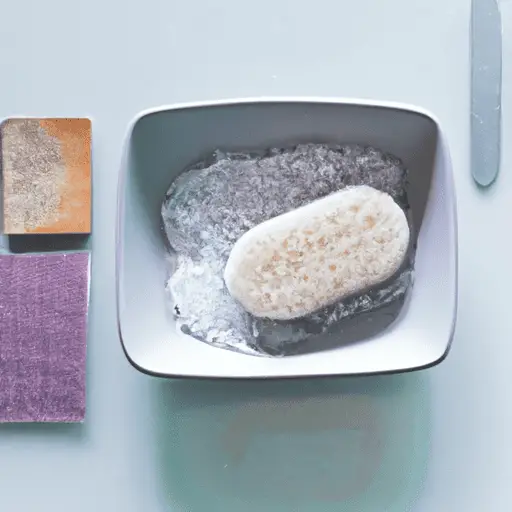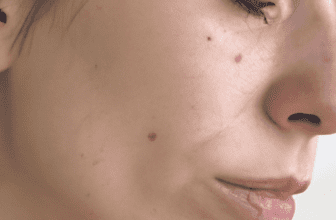DIY Skincare Hacks
-
Table of Contents
- DIY Skincare Hacks: A Comprehensive Guide
- Key Takeaways
- Introduction: The Rise of DIY Skincare
- The Science Behind DIY Skincare Ingredients
- Creating a DIY Skincare Routine
- FAQ Section
- 1. Are DIY skincare products safe?
- 2. Can I replace all my commercial skincare products with DIY alternatives?
- 3. How long do DIY skincare products last?
- 4. Can I use any kitchen ingredient in my DIY skincare products?
- 5. Do DIY skincare products really work?
- Conclusion: The Power and Potential of DIY Skincare
- Key Takeaways Revisited
DIY Skincare Hacks: A Comprehensive Guide

[youtubomatic_search]
Key Takeaways
- DIY skincare hacks can be cost-effective and natural alternatives to commercial products.
- Common kitchen ingredients like honey, oatmeal, and yogurt have proven skincare benefits.
- DIY skincare routines should be tailored to individual skin types and concerns.
- Scientific research supports the efficacy of many DIY skincare ingredients.
- Always patch test DIY skincare products to ensure they won’t cause irritation or allergic reactions.
Introduction: The Rise of DIY Skincare
With the increasing interest in natural and organic products, many people are turning to DIY skincare hacks as a cost-effective and customizable alternative to commercial products. This article explores the science behind popular DIY skincare ingredients, how to create a DIY skincare routine, and the potential risks and benefits of this approach.
The Science Behind DIY Skincare Ingredients
Many common kitchen ingredients have proven skincare benefits. For example, honey is a natural humectant that attracts and retains moisture, making it an excellent ingredient for dry skin. It also has antibacterial properties, which can help treat acne (Source: Al-Waili, N. S., Salom, K., & Al-Ghamdi, A. A. (2012). Honey for wound healing, ulcers, and burns; data supporting its use in clinical practice. TheScientificWorldJournal, 2012).
Oatmeal, another popular DIY skincare ingredient, has anti-inflammatory and antioxidant properties that can soothe irritated skin. It’s often used in DIY face masks for sensitive or eczema-prone skin (Source: Pazyar, N., Yaghoobi, R., Kazerouni, A., & Feily, A. (2012). Oatmeal in dermatology: a brief review. Indian journal of dermatology, venereology and leprology, 78(2), 142).
Yogurt, rich in lactic acid, can gently exfoliate and brighten the skin. It’s also hydrating and can help reduce the appearance of fine lines and wrinkles (Source: Sarkar, R., Arora, P., & Garg, K. V. (2013). Cosmeceuticals for hyperpigmentation: what is available?. Journal of cutaneous and aesthetic surgery, 6(1), 4).
Creating a DIY Skincare Routine
Creating a DIY skincare routine involves understanding your skin type and concerns, choosing appropriate ingredients, and testing products for potential irritation or allergic reactions. For example, if you have dry skin, you might create a moisturizing face mask with honey and avocado. If you have oily skin, you might use a toner made from witch hazel and tea tree oil.
It’s important to remember that not all DIY skincare hacks will work for everyone. What works for one person might not work for another, and some ingredients might even cause irritation or allergic reactions. Always patch test new products on a small area of skin before applying them to your face.
FAQ Section
1. Are DIY skincare products safe?
Most DIY skincare products are safe if used correctly. However, some ingredients can cause irritation or allergic reactions, so it’s important to patch test new products before using them on your face.
2. Can I replace all my commercial skincare products with DIY alternatives?
While DIY skincare products can be effective, they may not be able to replace all commercial products. For example, DIY sunscreens are not recommended because they may not provide adequate UV protection.
3. How long do DIY skincare products last?
Because DIY skincare products don’t contain preservatives, they typically don’t last as long as commercial products. Most should be used within a week and stored in the refrigerator.
4. Can I use any kitchen ingredient in my DIY skincare products?
Not all kitchen ingredients are suitable for skincare. Some, like baking soda, can disrupt the skin’s pH balance and cause irritation. Always research an ingredient before using it in a DIY skincare product.
5. Do DIY skincare products really work?
Many DIY skincare ingredients have proven benefits, but results can vary from person to person. It’s also important to remember that skincare is not just about products; a healthy diet, regular exercise, and adequate sleep are also crucial for skin health.
Conclusion: The Power and Potential of DIY Skincare
DIY skincare hacks offer a natural, cost-effective alternative to commercial products. With a little research and experimentation, you can create a skincare routine that’s tailored to your individual needs and preferences. However, it’s important to approach DIY skincare with caution, always patch testing new products and being mindful of potential risks.
Key Takeaways Revisited
- DIY skincare hacks can be a cost-effective and natural alternative to commercial products.
- Common kitchen ingredients like honey, oatmeal, and yogurt have proven skincare benefits.
- DIY skincare routines should be tailored to individual skin types and concerns.
- Scientific research supports the efficacy of many DIY skincare ingredients.
- Always patch test DIY skincare products to ensure they won’t cause irritation or allergic reactions.
[youtubomatic_search]
Tags: Loading...





